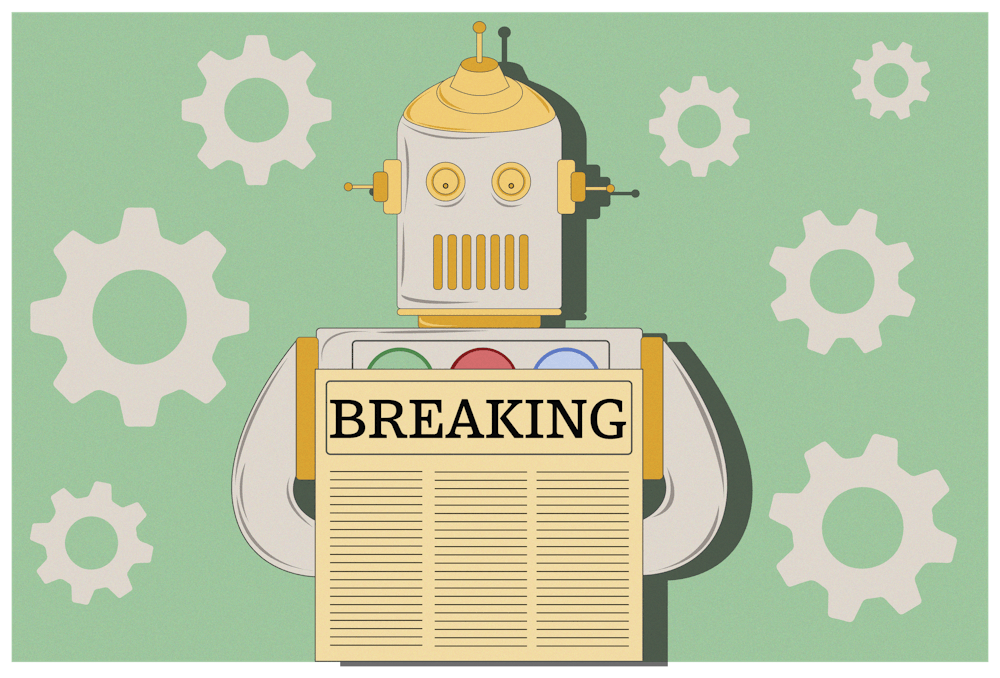As artificial intelligence becomes more prevalent in academics, faculty at USC are working to incorporate AI in a responsible and informed way by undergoing certification courses and conducting research on its effects on students.
Proficiency in AI use is becoming an increasingly important skill for students to have, said Sabrina Habib, an associate professor in the School of Journalism and Mass Communications. The ability to navigate it ethically and responsibly is something that they will need as they enter the workforce, she said.
“We can’t let (students) graduate without having a lot of familiarity with AI,” Habib said. “We just need to do it right, which means doing with caution, doing with skepticism, do it in a way that enhances what we’re doing instead of replacing what we’re doing.”

USC is looking to partner with IBM Watson, an AI computer system, in the fall to give members of the university access to an AI certification course. The course will be offered to faculty and staff before being made available to students, said College of Information and Communications Dean Tom Reichert.
“I would love for every single student and faculty and staff member in our college to have some kind of certification,” Reichert said. “When we start in the fall — at least the faculty and staff — because you can’t teach it if you really don’t understand it.”
Reichert said USC has been proactive in its approach to incorporate AI, but a technology that advances as quickly as it does can be difficult to keep up with.
“When I talk to other deans and directors of programs like ours across the country, I think we’re figuring out how to deal with this tool quicker than most, which I like,” Reichert said. “But also, it’s very difficult because it’s moving so fast that not everybody has the knowledge or the skill set."
The Biometrics and User Experience Lab in Davis College is also conducting a study of human-computer interaction to find out how users engage with AI algorithms in search engines.
The lab is testing how students comprehend information based on the order Google presents it by using simulations in which different sites are shown as the top result to each student. For example, students would search a topic such as "best alternative fuels" and be shown varied results. Some students would see wind energy as the top result, and others would see solar energy, said Alamir Novin, an assistant professor in the School of Information Science.
“Search engines are more and more incorporating AI,” Novin said. “If 80% to 90% of searches (in America) are being done through Google, then that's going to affect — whatever Google does and how it teaches people those or gives people information is going to affect how they learn about a topic.”
As studies show that users trust the highest search results to be most accurate, their perspective on a topic may be swayed, Novin said. Trusting the top result could lead to users regarding sponsored or algorithmically suggested information as the best information, which could impact their knowledge, he said.
“That’s an issue because ... their science education is being influenced by a search engine,” Novin said. “That should cause fear in anyone that cares about what's called science literacy, digital literacy, information literacy.”
Students who are interested in getting involved in the ongoing research can visit the lab in Davis College on Fridays at 2:30 p.m.

